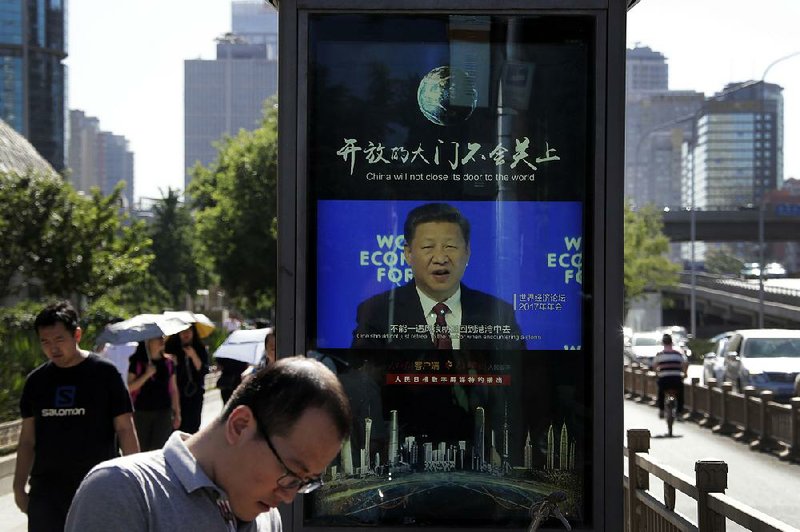BEIJING -- China is reducing import duties on washing machines, cosmetics and some other consumer goods under U.S. pressure to narrow its multibillion-dollar trade surplus.
The Cabinet announcement Wednesday was the third tariff cut in six months on selected imports in what Beijing says is an effort to improve consumer choice and encourage domestic consumption.
Import duties on washing machines and refrigerators will be cut from 20.5 percent to 8 percent, effective July 1, said the announcement carried by state television. Duties also will be cut on cosmetics, some drugs, shoes and some other goods.
Beijing is in the midst of talks with Washington on possible measures to narrow its trade surplus by increasing imports.
The U.S. commerce secretary, Wilbur Ross, is due in Beijing this weekend for talks on details of China's promise in mid-May to buy more American goods.
China accounts for the bulk of global production of many of the goods covered by Wednesday's tariff cuts. The change would give foreign producers of high-end versions more access to the Chinese market.
Previous rounds of tariff cuts since November covered avocados, mineral water, baby carriages and other high-value but low-volume imports.
Chinese leaders are in the midst of a marathon effort to nurture self-sustaining economic growth based on consumer spending instead of trade and investment.
Foreign products often are seen as higher quality, safer or cheaper. That has fueled a spending boom by Chinese tourists on basic goods including shoes, cosmetics and infant formula.
[LIST: See all products targeted by U.S.]
Economists say the changes also can help generate jobs in China by allowing consumers to buy higher-quality goods locally instead of when they travel abroad.
White House trade adviser Peter Navarro criticized Treasury Secretary Steve Mnuchin for declaring recently that the U.S.-China trade war was on hold, calling the remarks an "unfortunate sound bite" and acknowledging there's a dispute that needs to be resolved.
"What we're having with China is a trade dispute, plain and simple," Navarro said in an interview broadcast Wednesday with National Public Radio. "We lost the trade war long ago" with deals such as the North American Free Trade Agreement and China's entry into the World Trade Organization, he said.
Earlier this month, Mnuchin said in a televised interview that the prospect of a trade war with China was "on hold." His comments, after meetings with Chinese President Xi Jinping's top economic adviser, fueled expectations that both sides would be able to settle their differences through negotiations.
But persistent rifts over trade policy in the White House have created confusion about the U.S.' future relations with partners from China to the European Union. Mnuchin and White House economic adviser Larry Kudlow are free-trade supporters regarded as more conciliatory toward Beijing than Robert Lighthizer, the U.S. trade representative, and Navarro, the administration's fiercest China hawk.
The U.S. is confronting China as it picks battles on other trade fronts with some of its closest allies. Temporary reprieve from steel and aluminum tariffs for the EU, Canada and Mexico expire Friday. The U.S. allies have demanded a permanent and unconditional waiver from the levies, which are being imposed on the grounds of national security.
The U.S. is also racing to agree on a revised North American Free Trade Agreement to give the current Republican-controlled Congress a chance to approve the deal this year. Canadian Prime Minister Justin Trudeau said in an interview Tuesday that a "win-win-win" agreement is still possible but that he'd rather reach no deal than accept a bad one.
[DOCUMENT: Read full proposal from U.S. trade representative]
Information for this article was contributed by The Associated Press and by Jenny Leonard and Rich Miller of Bloomberg News.
Business on 05/31/2018
